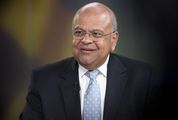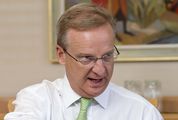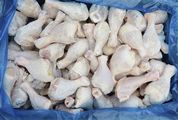AFFORDABILITY will to be key for the property market this year, said Seeff Properties chairman Samuel Seeff in reaction to the South African Reserve Bank hiking the repo rate by 50 basis points on Thursday.
This takes it to 6.75% and the base home loan rate beyond the 10% barrier to 10.25%.
Mr Seeff said he believed the market would absorb the rate hike, but there would be a knock-on effect. The affordable and middle-income sector would feel the effect most and obtaining credit was likely to become tougher for first-time buyers.
"Basic living and property costs will climb considerably, as will mortgage loan costs. Buyers will be looking very closely at prices and will be driving a hard bargain as they know that the market is getting tougher," said Mr Seeff.
"The average price growth will deteriorate further and we may even see negative equity growth when we adjust for inflation. For now though, we are still sitting with a fairly healthy housing market, packed with plenty of demand."
He added that a good property market required good economy. Since both were sentiment and confidence driven, however, he believed property would remain an attractive investment this year, although the economic decline and deteriorating confidence remained serious concerns.
Lack of supply
The rate hike was likely to create a further dampening effect on housing demand as consumers were already exercising a more conservative and considered approach to both buying and selling, Pam Golding Property (PGP) group CE Andrew Golding said.
"While doom and gloom merchants commentating on the property market abound, a more pragmatic approach presents a different picture," said Mr Golding.
"Firstly, given the volatility being experienced in financial markets, exchange rates, stocks and commodities, many analysts are seeing property — bricks and mortar — as a sound investment and rand hedge."
He added that in SA property was increasingly sought after among the new generation of young, first-time buyers. Pam Golding Property said that activity in the less than R1m price range remained limited mainly by a lack of supply, and not a lack of demand.
He said interest rates were still low by historical standards. At the height of the global economic crisis the prime rate in SA reached 15.5%.
Kay Geldenhuys, manager for property finance processing at bond originator Ooba, said the rate hike would have a negative effect on residential housing markets as many consumers were already facing increasing financial strain due to elevated levels of debt and the rising cost of living. Like Mr Seeff, she also expected affordability to be a key factor.
The repayment on a R1m home loan over 20 years would now cost the homeowner an additional R331 a month, she said. On a 20-year home loan of R1m, the monthly instalment has risen by R1,138 a month since January 2014.
Speculation
Property speculation would also be affected by the rate hike, said John Loos, household and property sector strategist at FNB Home Loans.
"There is little room for speculation in the housing market by speculators wishing to use cheap credit to make a quick capital gain. Rapid capital growth just isn’t there at the moment," said Mr Loos.
He said he expected house price inflation to decline from recent levels of about 7% to below consumer price index (CPI) rates during the course of this year.
Mr Loos said it was best for the consumer if the Bank continued to hike interest rates slowly.
"We do believe that gradual hiking by the (Reserve Bank) can assist in correcting certain macroeconomic imbalances, and is thus desirable.
"Our expectation is that the (Reserve Bank) will continue to nudge rates slowly higher, possibly reaching a 11% prime rate towards the of 2016/early in 2017. The behaviour of the rand will be key as to whether the (Reserve Bank) is allowed to hike gradually, or whether it has to ‘speed it up’ as it has done today perhaps."
He said consumers should buy homes well within their means so they would be able to absorb more interest rate hikes should they materialise. It was also important to consider a inflation rate and how it ate into disposable income.
George Radford of international property investment firm IP Global, said he believed it was the right time to invest in property.
"With a volatile start to the year for many global markets and a mixed economic outlook for 2016, the property investment industry remains stable," he said.
"Many of our clients are choosing to invest in core safe-haven markets like the UK, Australia and Germany."
Bond restructuring
Adrian Goslett, the CEO of Re/max of Southern Africa, cautioned that those consumers who were already overindebted needed to create budgets that ensured they lived within their means.
"If necessary, sell the second car and get rid of credit cards. Selling a home should be the last option, as property is the one long-term asset that should yield a return over time unlike cars, boats and the like," he said.
"After a consumer has gotten rid of or ring-fenced short-term debt, he or she should speak to their bank about the options of restructuring their bond."





















Change: 1.30%
Change: 1.45%
Change: 0.91%
Change: 1.21%
Change: 2.00%
Data supplied by Profile Data
Change: -0.09%
Change: 0.20%
Change: 1.30%
Change: 0.00%
Change: 0.41%
Data supplied by Profile Data
Change: 0.05%
Change: 0.04%
Change: -0.05%
Change: -0.66%
Change: 0.46%
Data supplied by Profile Data
Change: -0.01%
Change: 0.11%
Change: -0.13%
Change: -0.78%
Change: -0.08%
Data supplied by Profile Data